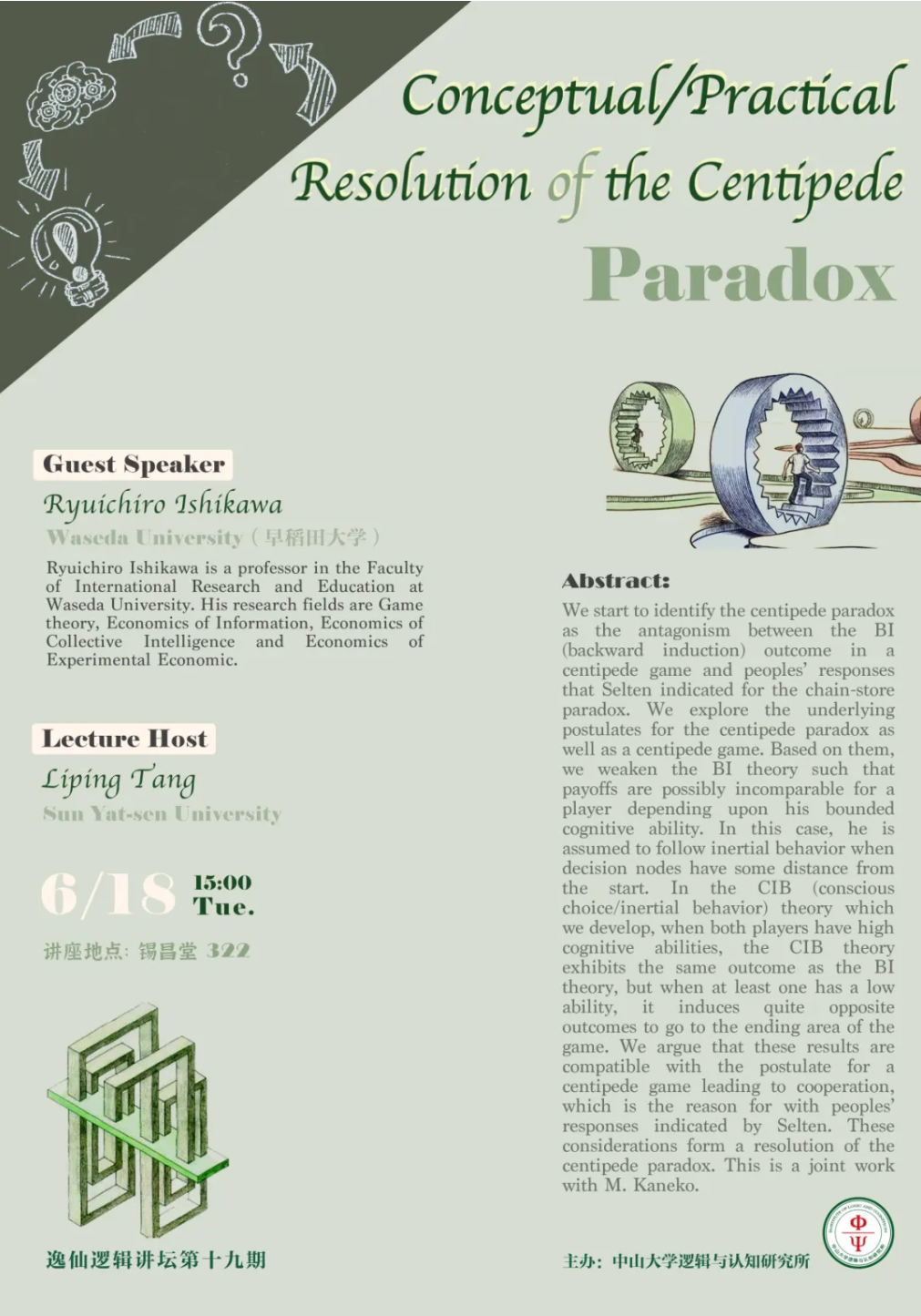逸仙逻辑讲坛第十九期|Ryuichiro Ishikawa:一个解决蜈蚣博弈悖论的概念和实践方法
一个解决蜈蚣博弈悖论的概念和实践方法

题目:Conceptual/Practical Resolution of the Centipede Paradox
一个解决蜈蚣博弈悖论的概念和实践方法
主讲人:Ryuichiro Ishikawa 教授
早稻田大学国际学术院
主持人:唐丽萍 副教授
太阳集团城娱8722
时 间:6月18日(周二)下午15:00
地 点:锡昌堂322室
主办方:太阳集团tcy8722逻辑与认知研究所
主讲人简介
Ryuichiro Ishikawa is a professor in the Faculty of International Research and Education at Waseda University. His research fields are Game theory, Economics of Information, Economics of Collective Intelligence and Economics of Experimental Economic. He has published two books in Game theory and Economics of Social institution. He has published more than 20 papers in leading Economic Journals.
讲座摘要
We start to identify the centipede paradox as the antagonism between the BI (backward induction) outcome in a centipede game and peoples’ responses that Selten indicated for the chain-store paradox. We explore the underlying postulates for the centipede paradox as well as a centipede game. Based on them, we weaken the BI theory such that payoffs are possibly incomparable for a player depending upon his bounded cognitive ability. In this case, he is assumed to follow inertial behavior when decision nodes have some distance from the start. In the CIB (conscious choice/inertial behavior) theory which we develop, when both players have high cognitive abilities, the CIB theory exhibits the same outcome as the BI theory, but when at least one has a low ability, it induces quite opposite outcomes to go to the ending area of the game. We argue that these results are compatible with the postulate for a centipede game leading to cooperation, which is the reason for with peoples’ responses indicated by Selten. These considerations form a resolution of the centipede paradox. This is a joint work with M. Kaneko.


